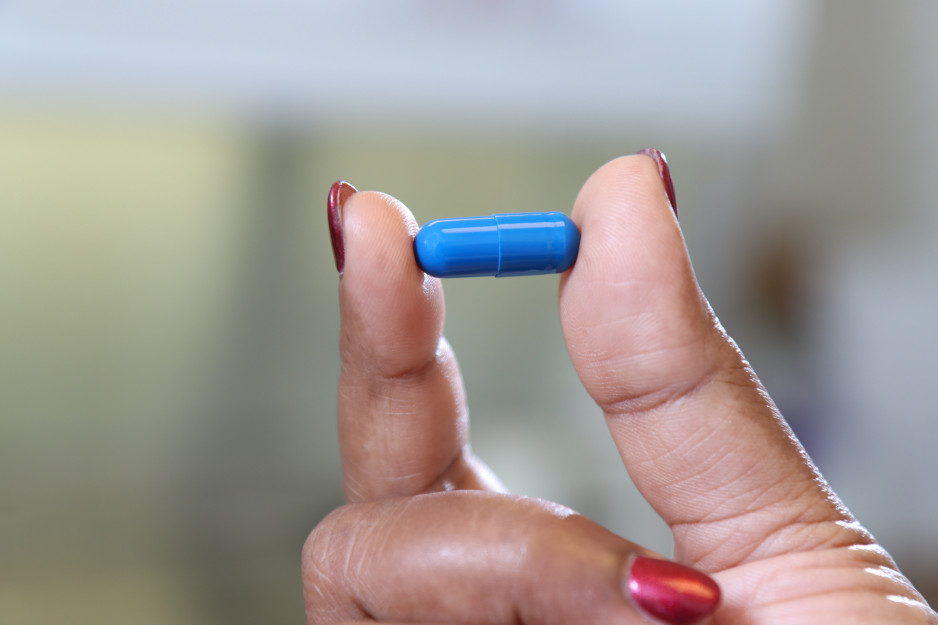St. Joseph’s Health Care London (SJHCL) is calling on local residents to pitch in their poop to help support a routine but life-changing medical treatment.

The treatment, oral capsule-based fecal microbiota transplant, or FMT, has been found to all but cure C. difficile infections in patients, SJHCL officials say, citing a 96-per cent success rate through its Infectious Diseases Care Program.
A treatment bottleneck has emerged, however, in a shortage of fecal donations from the public, due in part to the COVID-19 pandemic, resulting in a patient waitlist, they say.
Clostridioides difficile infections are most commonly acquired after antibiotic regimens, and sometimes while in hospital.
Antibiotics will wipe out the healthy bacteria in the gut, allowing C. difficile bacteria to overgrow, resulting in severe diarrhea and other health complications, said Dr. Michael Silverman.
“The diarrhea is often severe enough to put people into hospital, (it) can put people in the intensive care unit, and rarely people can die from it,” said Silverman, chair of infectious diseases at Schulich School of Medicine and Dentistry and chief of infectious diseases at SJHCL and London Health Sciences Centre.

In treating such infections, antibiotics are often used, Silverman says, however a problem emerges in that antibiotics will kill C. difficile along with many of the gut’s healthy bacteria. When the patient stops the antibiotics, the C. difficile will come back.
“What people need is healthy bacteria that will control the C. difficile. And the way to get that is from a healthy person,” Silverman said.
How does one get healthy bacteria? Poop.
Silverman says healthy, screened donors provide a fecal donation in a container to St. Joseph’s which is then processed and filtered. The gut bacteria from the donation is then put into capsules and frozen, and on the day of treatment, is defrosted and consumed by the patient.
One poop donation can go towards upwards of 40 capsules, considered one treatment dose, which the patient consumes with water over the course of about 30 to 40 minutes on an empty stomach, Silverman says. The capsules are opaque and have no smell.
The bacteria from the capsules then enters the stomach, replacing the C. difficile and becoming the new normal gut bacteria.
Capsule-based fecal transplants are relatively recent, and Silverman notes that they have been underway at St. Joseph’s for approximately four to five years.
St. Joseph’s Infectious Diseases Care Program is one of just two programs in the country administering the capsule treatment. Elsewhere, fecal transplants are often done by enema or colonoscopy, methods which can take longer and yield lower success rates, says Silverman.
Officials have run into an unfortunate problem, however: a lack of fecal donations to be capsulized. The challenge in sourcing the donations comes in the stringent processes put in place in picking poop providers.
Candidates are screened for underlying conditions and to ensure they are on no medications, Silverman says. They’re also screened for known transmissible agents such as bacteria or parasites which could be harmful to the patient.
“Many people have a bacteria or a parasite that’s not really causing them any harm … However, if it got into someone whose immune system was weakened … it could cause disease,” he said.
Since the COVID-19 pandemic began, donor candidates have also been screened to ensure they aren’t currently infected with COVID, and haven’t been for the last three months, something which has impacted the candidate pool, Silverman says.
“We have a lot of people in London who’ve had COVID within the past three months, and these are young, healthy people … and so our supply of donors has gone down,” he said.
“The other thing is, people … they do this for quite some time, but many of our donors are, let’s say, undergraduate or graduate students, and then they graduate and move to take a job somewhere far away, and then we have to find a new donor to replace them.”
Given the costs associated with screening — none of which is footed by donors — Silverman says its an ongoing challenge to find donors who will contribute regularly and not just once.
“We have to screen quite a few people to find one who will pass the screening. They say that it’s easier to get into Harvard than to become a fecal transplant donor just because their acceptance rates are higher.”
One person who managed to pass through the process was John Chmiel, a graduate student at Lawson Health Research Institute’s Canadian Centre for Human Microbiome and Probiotics at St. Joseph’s.
Chmiel has been donating to the program since 2018, and says he learned about successful trials of fecal transplants for C. difficile while an undergrad.
It was in graduate school that he hopped on the chance to take part in a fecal transplant-related study that a lab colleague was recruiting for, he said.
“I was like, ‘Hey, I got to do this. This sounds great. It’s like cutting edge medicine that I want to be a part of in any way I can,'” he said.
“I’m a Ph.D. student, so we do a lot of research around this area. I thought it was fascinating how the FMT would just almost magically fix the C. difficile infection. I think the research behind it is really cool because we’re essentially using ourselves to treat ourselves.”
Chmiel says he has been unable to donate to the program for the last few months as a result of a COVID-19 infection, but will resume donating once he is allowed.
He encourages others to see if they’re eligible to donate. In addition to helping the community, Chmiel jokes the initiative also makes for a great conversation icebreaker.
“If you’re interested at all, go for it. Worst case that happens is that you’re not eligible, but it’s super easy,” he says.
“I do it one to three times a month and it takes like 10 minutes or so. The team is really great and they’re really good at working with you to get those samples as needed … the more donors we have, the more people we can help and the more research that we can do to advance this field.”
According to St. Joseph’s, donors are paid $50 in cash per drop off to cover parking and travel expenses. Those interested in becoming a donor can call 519-646-6100 ext. 61726, or email Seema Nair Parvathy (PhD) at SeemaNair.Parvathy@sjhc.london.on.ca.
More information on developments being made in FMT research can be found on Lawson’s website.








Comments